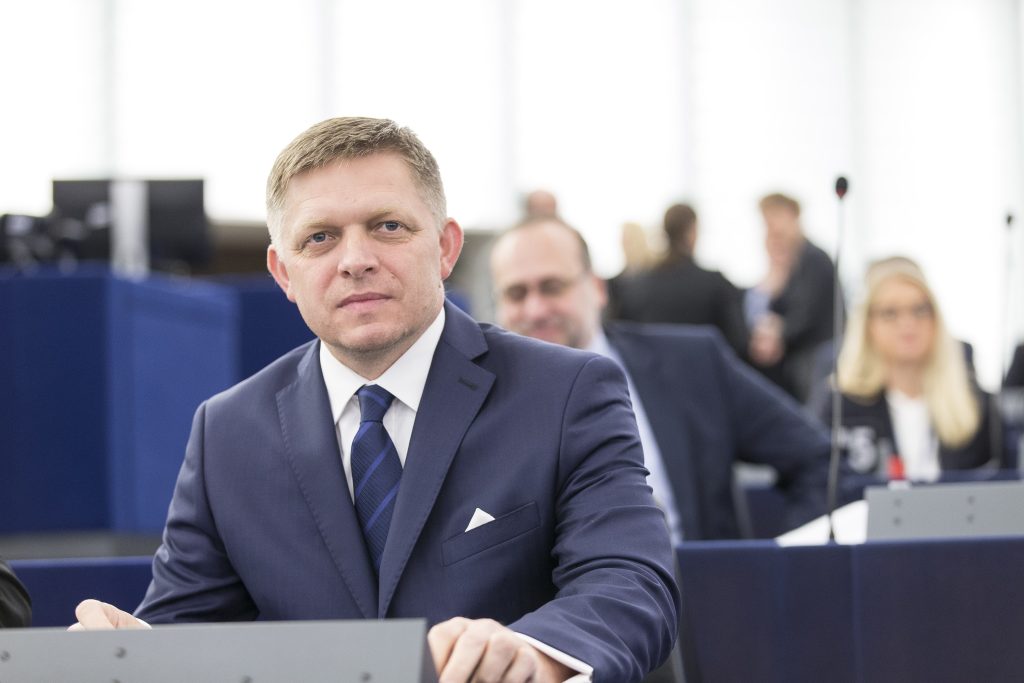A Looming Illiberal Shift: Slovakia after the 2024 Presidential Election
Since Slovakia became a full member of the EU in 2004, officials in Brussels had little reason to doubt its European resolve and democratic ambitions. With a prime minister that is increasingly cozying up to Russia and a newly elected President who supports his authoritarian tendencies, blind trust might no longer be justified.
The recent victory of Peter Pellegrini in the 2024 Slovak Presidential election has not only sparked discussions domestically but also raised questions about Slovakia’s standing within the European Union (EU). This is especially true because the opponent he defeated, diplomat and former foreign minister Ivan Korčok, was considered to be a staunch supporter of liberal ideals and European values, while Pellegrini himself seems to mirror many of the authoritarian and, at times, pro-Russian ideals of current prime minister Robert Fico, who was recently the victim of an assassination attempt and is still “in a serious condition” according to official sources.
But let’s take a step back. Slovakia has always been known for its moderate stance on EU-related issues, which remained relatively unchanged over the past decades, irrespective of the political parties or coalitions in charge. The most recent governments under prime ministers Igor Matovič (2020-2021) and Eduard Heger (2021-2023) were at times even perceived as shining examples for Western member states, especially concerning their unwavering support for Ukraine. However, this perception changed with the parliamentary election in September 2023, in which current prime minister Robert Fico reigned supreme. Fico benefited from the deep mistrust and dissatisfaction with the previous governments that had started to build up under prime minister Igor Matovič (especially during the coronavirus pandemic) and continued with Eduard Hegers governing coalition, which was plagued by internal disputes and was eventually brought down by a vote of no confidence in December 2022. The latest edition of the Bertelsmann Transformation Index (BTI) states that despite having made some progress in areas such as judicial reform, anti-corruption efforts and media policies, political actors in Slovakia were increasingly resorting to the fast-track adoption of laws to circumvent criticism from civil society and other relevant stakeholders at the time.
Still, the victory of the Smer-SD came as a shock to many, not only because the party’s majority meant that Fico would return to office for a fourth time after his previous terms in 2006, 2012, and 2016, but also because it soon became clear that Fico was attempting to rebuild his political heritage. That included sneaking legislative changes, a return to his grandiose political schemes for Slovakia, and a willingness to push those who opposed him into the past. Only the post-electoral mass protests organized by the oppositional parties, who refused to stand by as Fico tried to initiate broad changes to the criminal justice system, were able to somewhat halt his agenda.
A flirt with authoritarianism under Fico
Still, right after the parliamentary election, Fico’s government began to change Slovakian laws to reshape the country’s image and to silence opinions. The government’s efforts to actively influence public opinion and to weaken institutions like the prosecutor’s office increased concerns about upholding the rule of law. As a result, for the first time in years, Slovakia’s relationship with the EU was questioned, as top officials doubted the country’s dedication to principles. Surely, Fico’s pro Russia stance also played a part in this, especially as government representatives officially met with Russian counterparts, Fico himself called for closer cooperation with Vladimir Putin and even shook hands with Sergey Lavrov. At the same time, press freedom also came under attack, with government authorities cozying up to Russian media outlets and restricting interactions with local media.
However, public backlash against these actions underscored a growing unease among citizens – and their increasing willingness to protect their (European) values and political beliefs. The mass protests of last winter, which started as demonstrations against the shutdown of the so-called Special Prosecutor’s Office, which investigates the most significant crimes of corruption, were most indicative of this trend. For a brief moment, Slovaks felt that their society, the rule of law, and their sense of belonging were being tested. Especially with the Presidential elections in the spring of 2024 around the corner, many people were convinced that this was their last chance to stop an illiberal transition of the Slovak political system and to secure a bare minimum of checks and balances vis-a-vis the ruling elite. Robert Fico’s reckoning seemed imminent.
Fueled by fear: What does Pellegrini’s victory mean?
But even though the Presidential election was marked by some positive highlights – including a rather high voter turnout that continued the trend of increased political participation in Slovakia highlighted in the BTI 2024 Country Report –, things turned out differently. In the election, Peter Pellegrini, whose campaign was openly backed by Robert Fico, faced off against pro-European and liberal candidate Ivan Korčok. Instead of profiting from the societal backlash against Fico, however, Korčok soon faced his issues: He was propagated by the government, individual ministers, and even by the presidential candidate Peter Pellegrini as a warmonger who would lead the country into open conflict with Russia and who planned to send Slovak soldiers to their deaths in Ukraine. In a charged atmosphere fueled by media manipulation and disinformation, public opinion was significantly influenced by toxic political narratives. Not the least, because Peter Pellegrini’s campaign mirrored many of the tactics employed by his ally Robert Fico: Pellegrini stoked fear and picked fights with the liberal media as well as with civil society. Many analysts within Slovakia soon started to express concerns over the prevalence of negative emotions driving voter sentiment. Unsurprisingly then, this helped Peter Pelligrini to sway the vote and secure a 53.12 percent majority, defeating Ivan Korčok with 46.87 percent.
Between an illiberal turn and the European elections
Shortly after the election, Prime Minister Robert Fico stated that Pellegrini’s victory tested the current coalition and its ruling. It is fair to assume, however, that the opposite is true: Pellegrini’s victory gives Fico an influential political ally and symbolizes the continuation of his influence, allowing him to push forward his agenda. This could include putting his loyalists into key positions, for example, by appointing a new head of the Slovak Intelligence Service (SIS) or appointing new judges to the High Court to bring about significant changes within the judiciary.
At the same time, one should not discount that the presidential election’s outcome also highlights deep divisions within Slovak society. A significant portion of the population is leaning towards rather polarized viewpoints, has growing sympathies towards Russia, and is open to far-reaching societal transformations. This should serve as a warning not only to the political opposition within Slovakia but also to EU officials, who may soon have to deal with another Hungary scenario, meaning: with another EU member state displaying authoritarian tendencies.
For now (but just for now), Pellegrini’s presidency may not lead to dramatic shifts in Slovakia’s stance vis-a-vis the EU. Still, it somewhat confirms the country’s trajectory and has the potential to bring about subtle changes in the coming years. As the journalist and writer Martin M. Šimečka emphasized recently, this might just be the first sign that the Slovak Republic is prepared to be among those states, who are willing to sacrifice the idea of common EU values in return for a redistribution of political power.
Especially with the upcoming European Elections in June around the corner, the resolve of pro-European, pro-liberal, and pro-democratic voters within Slovakia will be tested. As for now, they seem to be fighting off disillusionment, however. After all, with the Parliamentary and the Presidential election already lost, this could be the third consecutive punch to the stomach for them. For now it seems much more likely that the pro-Russian and far-right camp within Slovakia is taking the political initiative and can mobilize its base.

